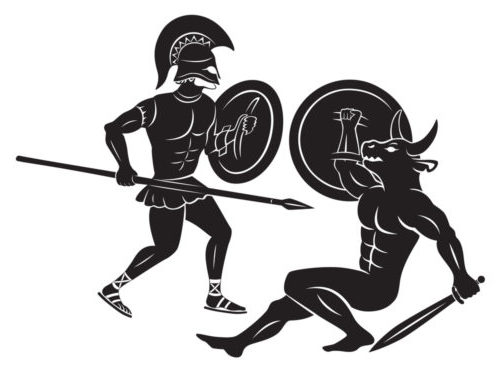
This short post is a crowd-sourcing inquiry. In its story on the World Health Organization declaring Covid-19 a pandemic (“Coronavirus Declared Pandemic by the World Health Organization,” March 11, 2010), the Wall Street Journal, usually a serious, prudent, and skeptical newspaper, writes:
The WHO generally defines a pandemic as a disease that has become widespread around the world, with an impact on society. The term has been applied to only a few diseases in history—a deadly flu in 1918, the H1N1 flu in 2009 and HIV/AIDS among them.
Perhaps the Journal was just echoing some WHO apparatchik? The truth is that the WHO itself has been, and is currently, fighting another terrible pandemic. Its Thirty-Ninth World Health Assembly declared in 1985:
Deeply concerned by the current pandemic of smoking and other forms of tobacco use, which results in the loss of the lives of at least one million human beings. every year and in illness and suffering for many more …
[The Assembly] CALLS for a global public health approach and action now to combat the tobacco pandemic …
REQUESTS the Director-General:
(1) to strengthen the present programme on smoking and health without waiting for its official introduction in the Eighth General Programme of Work, as a visible and resolute attitude on the part of WHO would provide Member States with encouragement and support, which are necessary prerequisites to abating the smoking pandemic before the year 2000. …
That’s been a long, very long lifestyle pandemic. It was certainly still going strong in 2006 when Kenneth Warner, a well-known University of Michigan Professor of Public Health, together with WHO’s Judith Mackay, published an article titled “The Global Tobacco Disease Pandemic: Nature, Causes, and Cures.”
The question is, Why does the state—the assemblage of individuals and sub-institutions constituting the whole apparatus of modern government—need pandemics and wars so much? What incites individuals who run, or work for, the state to launch wars on drugs, on poverty, on lifestyle pandemics, and wage real wars and trade wars? Perhaps we can, despite some risk of methodological confusion, raise again the question in the incipit of Anthony de Jasay’s The State (Liberty Fund, 1997 [1985]):
What would you do if you were the state?
Moreover, can we find a relation between all that and how the state is so badly unprepared when a real pandemic appears on the horizon—badly unprepared and often ludicrous like when it creates shortages to help its subjects?

READER COMMENTS
Phil H
Mar 12 2020 at 7:32am
Heaven forfend! An “assemblage of individuals” gets together and does things that are “often ludicrous”?! Whoever has heard of such a thing?
I mean, your question is apt, but in the year 2020 it’s about time to drop the mock surprise and rhetorical questions, isn’t it? What would you do if you were the state? Same thing you’d do if you were any human being: try clumsily to help, and show off to get girls. The state shows off by waging wars, and thank goodness most of them are metaphorical and bureaucratic rather than military now. The state clumsily tries to help by creating programs that work a bit, sometimes.
Pierre Lemieux
Mar 12 2020 at 10:59am
@Phil H: You write:
If you read de Jasay, you will see that this is just the tiny beginning of the answer. If you need an imperfect primer, see https://www.econlib.org/library/Columns/y2018/Lemieuxstate.html. But there is nothing like reading the book.
JFA
Mar 12 2020 at 9:30am
I’m trying to understand the point of this post. The WHO applied the term “pandemic” to a personal choice. Someone discussing the seriousness of COVID-19 didn’t relay that in their article (because the WSJ just parrots what WHO officials say?). Okay? Should we take this current pandemic less seriously because the WHO just uses that term willy-nilly? What’s the point of this post?
Also, the WHO isn’t the state but a near powerless international organization that seems to actually do a decent amount of good. It’s a bit of a leap to say the “state needs pandemics”. Wars, probably… but pandemics… probably not.
The US seems to have be unprepared, in part, due to the current president’s lack of understanding (or caring) about the seriousness of the situation and because he didn’t bother replacing the officials who had been tasked with coordinating pandemic responses. This doesn’t explain the entire bungling of the government response (regulating the testing probably has more to do with it), but when the government doesn’t take pandemics seriously, this is what you get.
JFA
Mar 13 2020 at 11:25am
I was actually being sarcastic with the “willy-nilly” description; declaring one personal action (i.e. smoking) that can have negative impacts on others a pandemic is not what I would call “willy-nilly” labeling. I have definitely been going after the governors and mayors and district superintendents, but to say Trump has nothing to do with it is a bit obtuse. One, he sets an example for those who worship him (e.g. you). He comes into contact with people who have tested positive and refuses to get tested. That sends the message that this isn’t a serious issue. Two, the messaging from the federal public health agencies is muddled because they can’t be seen as going against the message Trump is sending. Sadly, the governors and mayors have a learned behavior of relying on the federal government too much. Coordination is probably the most important aspect of any response. That’s where the federal government can actually help. It requires no authoritarian measures, just clear and concise communication (along with aiding in manufacturing the tests and allowing other organizations that can do testing to actually do the testing).
Comments are closed.